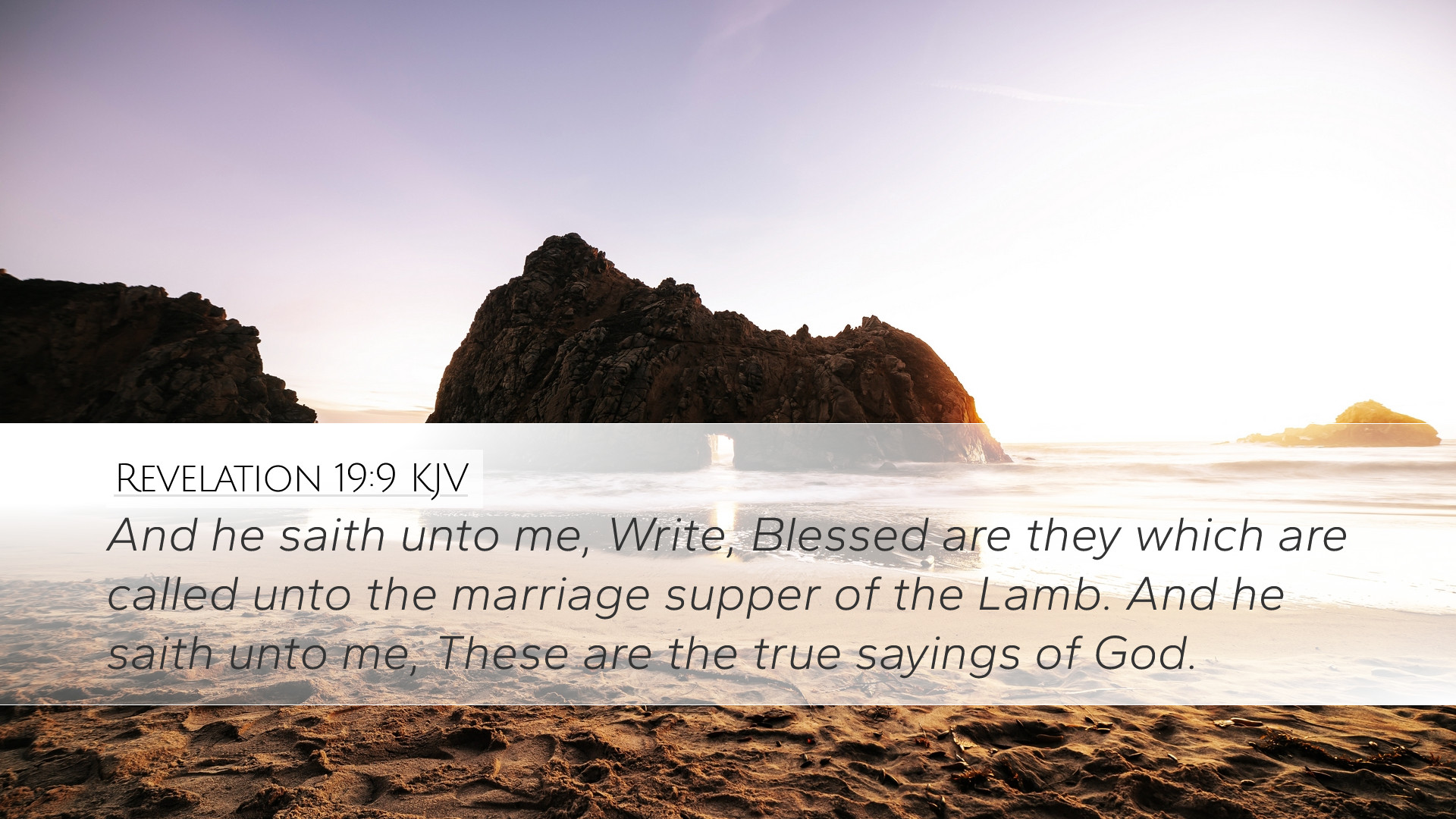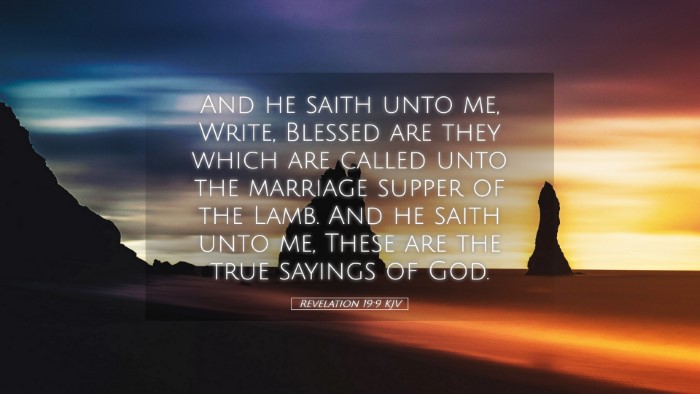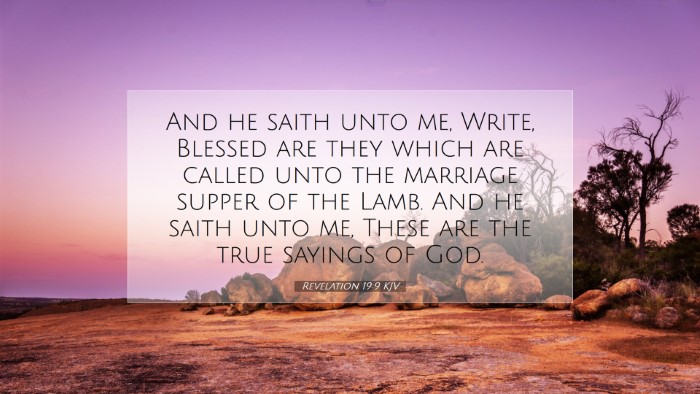Commentary on Revelation 19:9
Introduction
Revelation 19:9 presents a profound and celebratory moment within the larger narrative of the Book of Revelation. As the culmination of divine promises nears, this verse encapsulates an invitation to a great feast—the marriage supper of the Lamb. This moment is significant, not only for the Church but for all believers. This commentary synthesizes insights from revered public domain commentaries, offering a theological reflection suitable for pastors, students, theologians, and Bible scholars.
Text of Revelation 19:9
“And he said unto me, Write, Blessed are they which are called unto the marriage supper of the Lamb. And he saith unto me, These are the true sayings of God.”
Exegesis and Analysis
This verse falls within the context of Revelation 19, where the overarching themes of judgment and redemption are juxtaposed. The preceding verses announce the fall of Babylon the Great, a symbol of earthly corruption and rebellion against God. In contrast, the marriage supper of the Lamb signifies divine union, salvation, and celebration for the faithful.
The Invitation to the Feast
This verse emphasizes the blessedness of those invited to partake in the marriage supper. Matthew Henry notes that the invitation highlights the grace of God; it is an act of divine choice where the unworthy are called to partake in something glorious. The term “blessed” is a recurrent theme in Scripture, portraying the favor of God upon those chosen for salvation.
The Identity of the Guests
The guests at this supper are described as those “which are called.” Albert Barnes elaborates that this calling is not merely external but signifies a transformative invitation that requires a response from those called. The nature of this calling points towards a personal relationship with Christ and an acknowledgment of His salvific work. The call is often understood in the eschatological context, speaking to the ultimate gathering of believers towards eternity.
The Marriage Supper of the Lamb
The imagery of a marriage supper reflects significant biblical themes of covenant and intimacy. Adam Clarke highlights that the marriage metaphor underscores the relationship between Christ and His Church. Ephesians 5:25-33 offers a parallel that elucidates Christ as the bridegroom and the Church as His bride. This union is marked by love, fidelity, and eternal joy—a consummation of both spiritual and communal life.
Theological Implications
Revelation 19:9 carries deep theological weight with implications for eschatology, soteriology, and ecclesiology:
- Eschatological Significance: The marriage supper serves as a prophetic vision of the future hope that awaits believers. It foreshadows the ultimate restoration and realization of God’s kingdom.
- Soteriological Insights: The calling to the feast emphasizes grace and the need for a personal response to God’s invitation to salvation. This theme permeates the New Testament, reiterating that salvation is through faith.
- Ecclesiological Reflections: The verse reflects the communal aspect of faith, inviting believers to participate in a collective celebration. It calls the Church to remember its identity as the bride of Christ, a body called to glorify Him.
The Nature of God’s Word
At the conclusion of the verse, the angel affirms, “These are the true sayings of God.” Matthew Henry posits that this affirmation emphasizes the certainty and reliability of God’s promises. In a world rife with uncertainty, the authenticity of divine declarations calls believers to trust in God’s faithfulness. Adam Clarke further remarks that the truth of God’s revelations guarantees the fulfillment of His covenantal promises.
Encouragement for Believers
For pastors and leaders, this verse offers a source of hope and encouragement. It serves as a reminder of the ultimate victory of Christ and the blessings awaiting the faithful. In preaching and teaching, there is a call to emphasize the joy of the Gospel—a joy that perseveres even amid trials and tribulations of this world. The blessedness of being invited to the marriage supper should invoke both gratitude and urgency in sharing the message of salvation.
Conclusion
Revelation 19:9 stands as a beacon of hope in the Christian faith—a reminder of the wedding feast that awaits the redeemed. Through the insights gleaned from public domain commentaries, it is integral for believers, scholars, and leaders to cherish this invitation and extend it to others. The marriage supper of the Lamb serves not only as a future promise but as an ongoing reality, urging all to participate in the life of Christ today and anticipate the glorious consummation of His kingdom.


